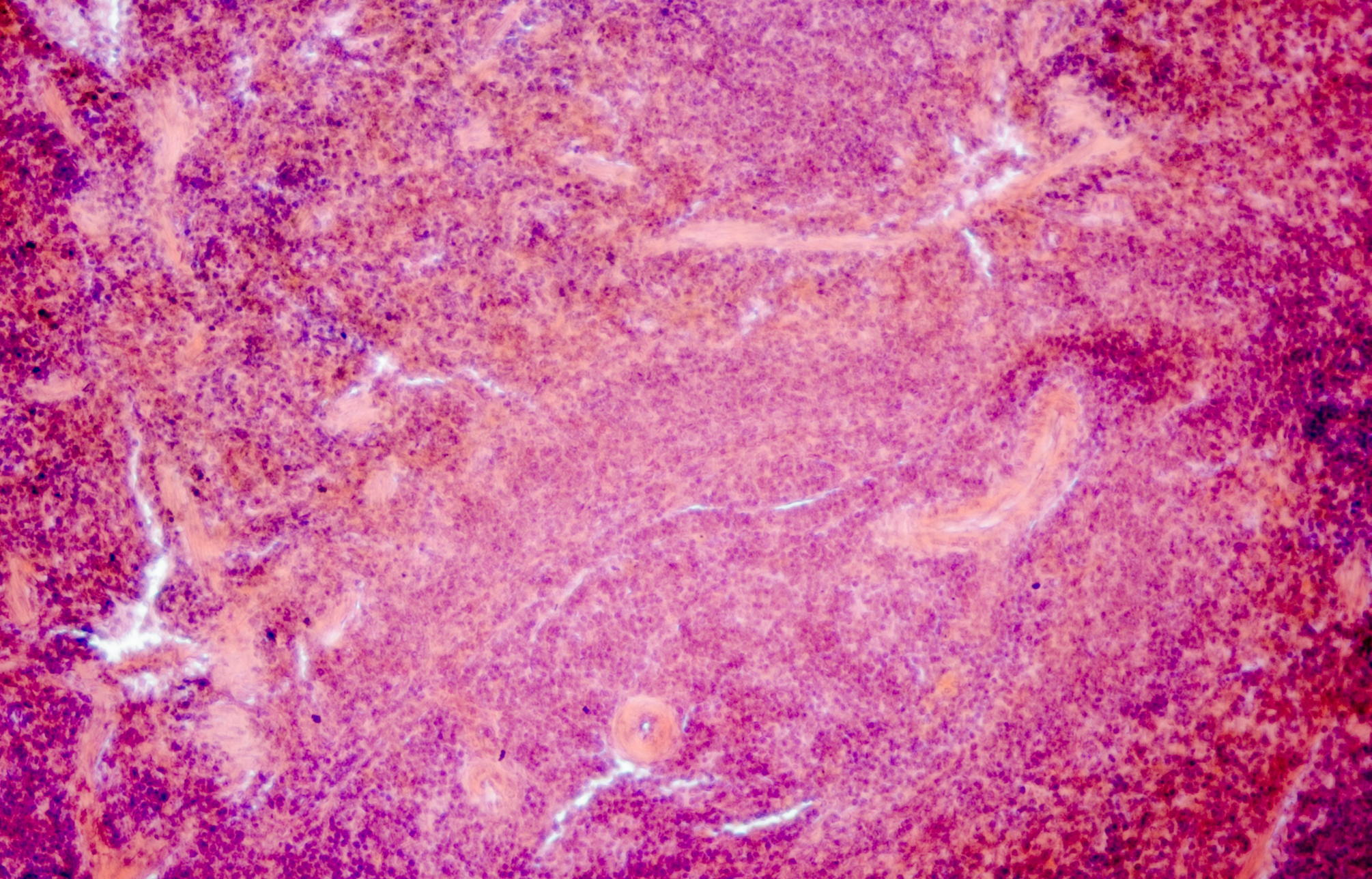Researchers identify a key metabolic gene as target for improved cancer immunotherapy
The CDA gene is among the top upregulated metabolic genes in immunotherapy-resistant tumors
Leuven, 06 June 2024 – Researchers at the VIB-KU Leuven Center for Cancer Biology have identified a potential target for cancer immunotherapy. The team, led by Professor Massimiliano Mazzone found that the CDA gene is among the top upregulated metabolic genes in immunotherapy-resistant tumors. Inhibiting this gene through pharmacologic or genetic intervention led to better T-cell infiltration, increasing effectiveness of immunotherapy in a type of pancreatic cancer called PDAC. The results of the study have been published in Nature Cancer.
At present, immunotherapy treatments, including adoptive T-cell transfer, cancer vaccines and immune checkpoint blockade (ICB), represent a promising option for cancer patients. Despite the high response rates with prolonged survival in subsets of melanoma, lung, and renal cancer patients, ICB struggles to show clinical benefit in several other tumors such as in most of colorectal cancer and pancreatic ductal adenocarcinoma (PDAC) patients.
PDAC is one of the most aggressive and lethal cancers with an overall 5-year survival rate of 9%. In Belgium alone, pancreatic cancer is the 9th most common cancer with 2242 diagnoses in 2021. Most patients are diagnosed at advanced stages with distant organ metastases, resulting in less than 20% of patients being eligible for surgery at the time of diagnosis. Most therapies, including ICB, are not effective and many patients who undergo surgery ultimately relapse.
An enzyme that tames TAMs
A team led by Professor Massimiliano Mazzone at the VIB-KU Leuven Center for Cancer Biology investigates ways to bypass immunotherapy resistance. In their most recent study, co-authored by Tommaso Scolaro, Marta Manco, Mathieu Pecqueux and Ricardo Amorim, the team studied the role of an enzyme called cytidine deaminase or CDA in pancreatic ductal adenocarcinoma.
Professor Massimiliano Mazzone: “CDA is an enzyme that helps recycle parts of DNA and RNA. It also deactivates some cancer drugs, which can make these treatments less effective. While the consensus is that CDA plays a role in resistance to chemotherapy, its role in immunotherapy resistance was never studied. We decided to take a closer look and to determine if CDA is indeed a roadblock for treatments such as ICB.”

By analyzing multiple datasets of PDAC tumors that were both responsive and resistant to ICB treatment, the team proved that the presence of CDA in cancer cells results in the creation of uridine-diphosphate (UDP). UDP is a molecule that can signal certain immune cells known as tumor-associated macrophages (TAMs). In doing so, UDP can hijack TAMs, turning them immunosuppressive. An important finding, because TAMs make up approximately 50% of tumor mass and are widely associated with tumor progression.
Tommaso Scolaro, first author of the research paper: “To our excitement, our study showed that CDA indeed contributes to immunotherapy resistance. This led to our next hypothesis that inhibiting the gene responsible for creating CDA could in turn weaken the immunosuppressive properties of PDAC tumors that are typically resistant to treatments such as ICB.”
A new gene target
As a next step, the team looked at ways to inhibit the CDA gene in cancer cells. Through pharmacologic and genetic interventions, the team was able to disrupt the interactions between CDA expressing cancer cells and TAMs. This led to better infiltration of T-cells and a higher susceptibility for immunotherapy treatments in resistant PDAC tumors, confirming that targeting CDA in cancer cells (or the UDP receptor in TAMs) can overcome the immunosuppressive qualities of a tumor. Better yet, the team also noted the same results in other cancer types such as melanoma.
Massimiliano Mazzone: “The results of this study are very positive to say the least. Not only does this propose a new potential target to enable immunotherapy in resistant cancer types, but it also improves our understanding of what drives immunosuppression in tumors. PDAC is one of the deadliest cancers out there. While our results give hope, more research is needed before we can bring this to the patient.”
This research was made possible in close collaboration with Professor Baki Topal at the University Hospital of Leuven (UZ Leuven) and with the financial support from the Fonds Wetenschappelijk Onderzoek (FWO), the European Research Council (ERC), and the Methusalem Fund.
—
DOI: 10.1038/s43018-024-00771-8
—
Questions from patients
A breakthrough in research is not the same as a breakthrough in medicine. The realizations of VIB researchers can form the basis of new therapies, but the development path still takes years. This can raise a lot of questions. That is why we ask you to please refer questions in your report or article to the email address that VIB makes available for this purpose: patienteninfo@vib.be. Everyone can submit questions concerning this and other medically-oriented research directly to VIB via this address.



